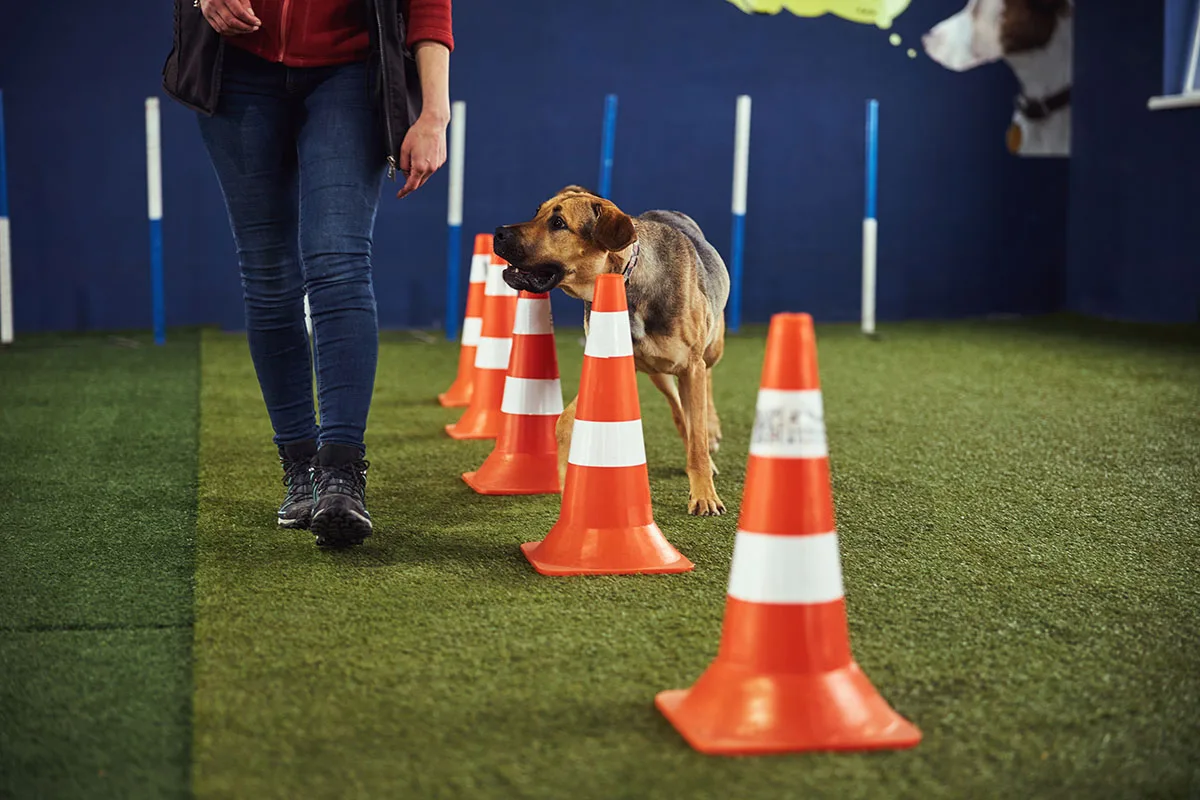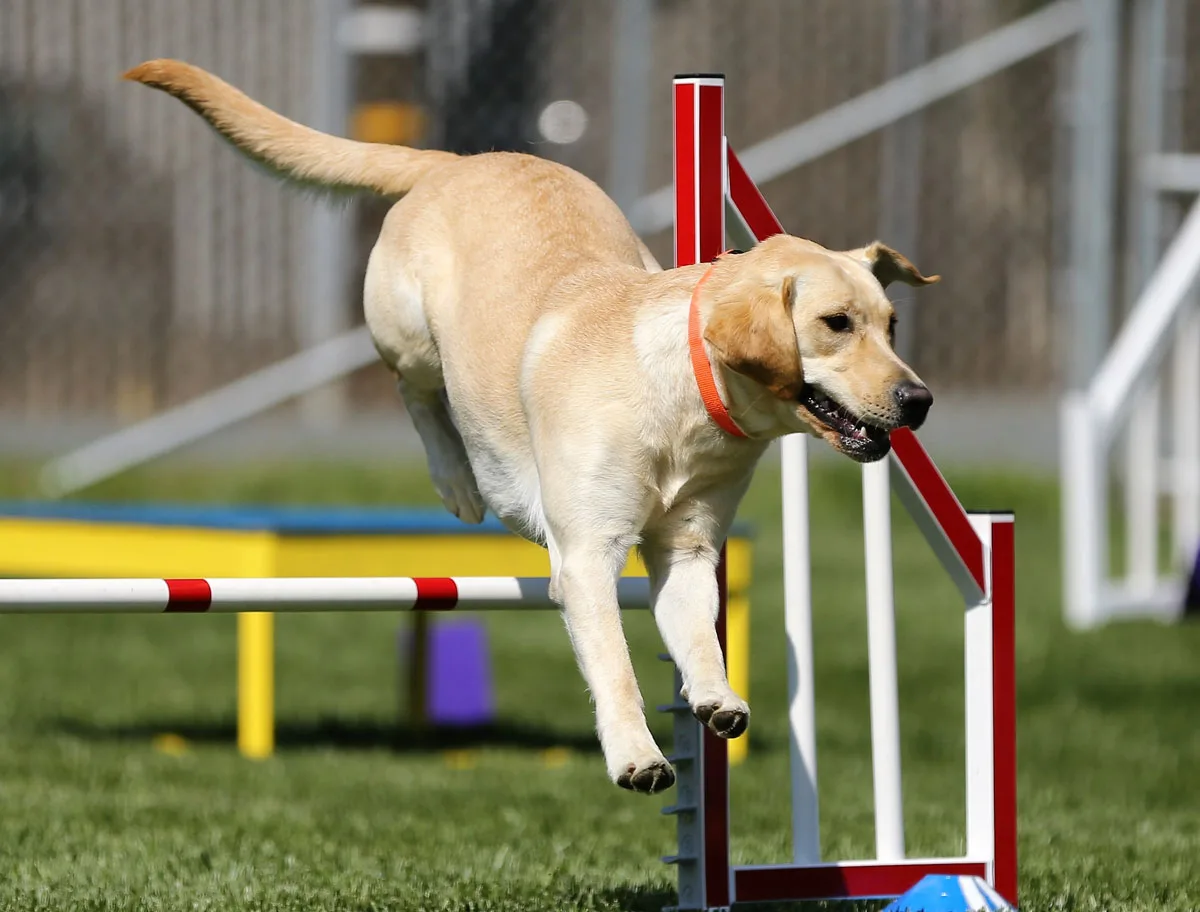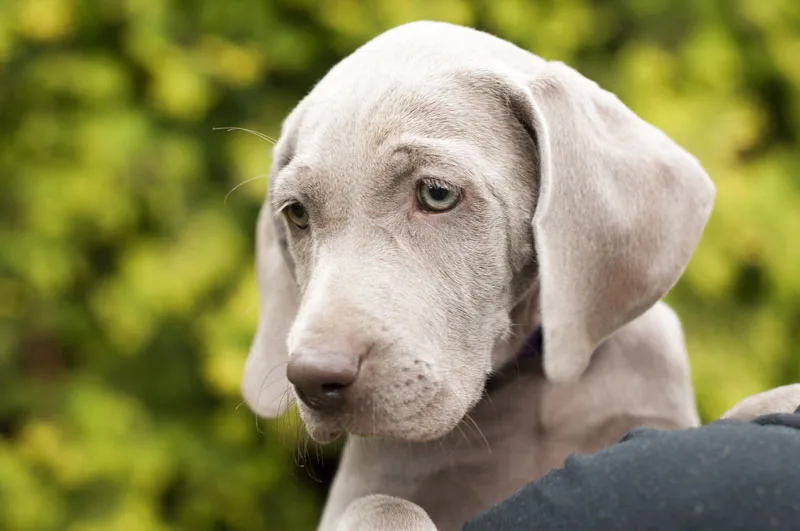
Brain training for dogs is important to maintain healthy cognitive function, as well as keeping your pet physically fit. It is especially important if you have a confused dog who is in need of extra help
It’s not only young dogs that may need brain training, senior pets can also be taught new tricks to support cognitive function. Like us, as pet’s age they can have senior moments and if you have a confused dog, it may mean they need extra training and cognitive support.
Dogs are also intelligent animals and if they get bored this could lead to a destructive dog. To keep your dog occupied whilst you’re out of the house, or to help keep an older dog’s brain active, there are some games that can help to maintain cognitive function in dogs, which include:
The Muffin Tin Game
This is a beginner brain game, which can be set up using things that you have lying around the house. Use an old muffin or cupcake tin and place some treats in a few of the holes, then cover all of the hols with balls or some kind of toy and let your dog figure out how to remove the toys to get to the treats
Hide and Seek
Let your dog use their ears and nose to seek you out. Reward them with a treat when they find you. You could also hide treats around the house and get your dog to sniff them out.
Treasure Hunt
Dogs are powerful sniffers and rely on their noses more than any other sense. To make the game extra fun for your dog, use something extra smelly that they love, like a treat toy full of peanut butter or their favourite old toy. Show them the toy then ask them to sit whilst you hide it.
The Cup Game
Line up three old cups in front of your dog. Take a favourite treat and put it under one cup. Let your dog watch as you move the cups around and give them the treat when they pick the right cup.
Toy Pick Up
Get your pooch to help you tidy up but training them to pick up things, like their toys. Once they pick up the object teach them to deposit it in a designated location.
Omega 3s to aid brain training for dogs
Omega 3s have been shown to aid the learning abilities of young puppies. Other studies linked to low blood Omega 3 with dog aggression, indicating beneficial applications of Omega 3s throughout the entire life of your pet to maintain brain health.
If you are looking for a natural supplement to aid brain training for dogs or have a confused dog, then Nutramind is recommended by vets throughout the UK for nutritional support for brain health in pets. Nutramind has been developed by vets to provide high strength nutritional support for cognitive function in dogs and cats. It includes the key nutrients for supporting ageing pets, whilst also benefiting younger pets in training and learning.


